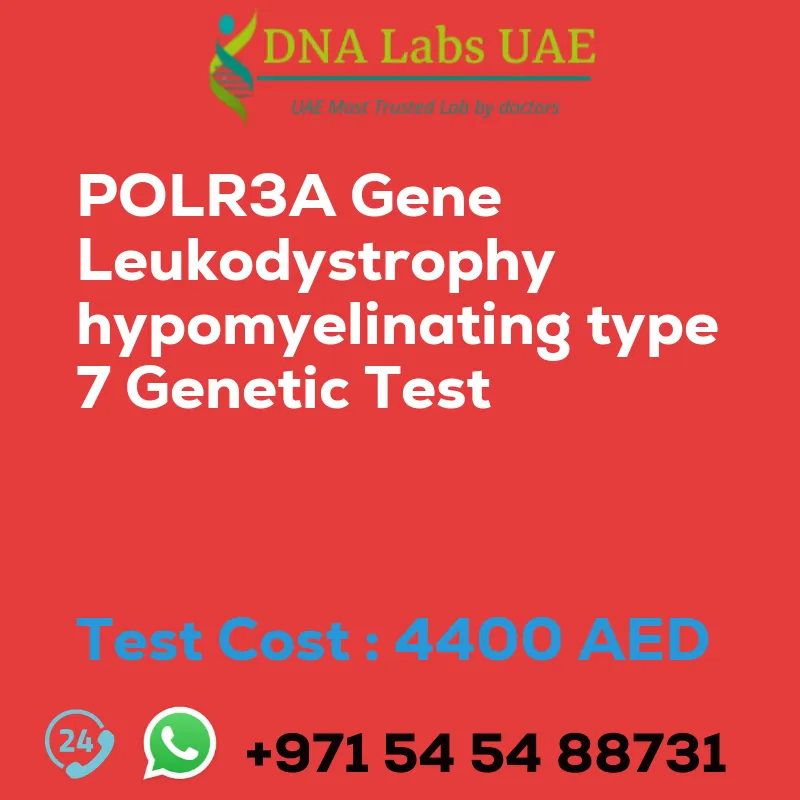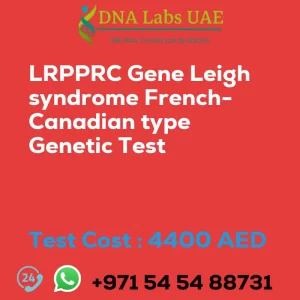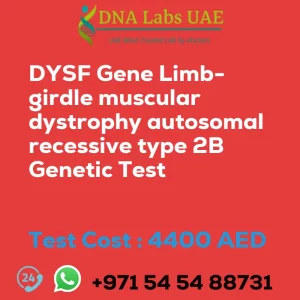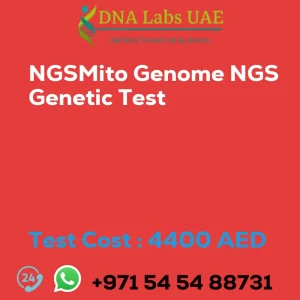POLR3A Gene Leukodystrophy hypomyelinating type 7 Genetic Test
At DNA Labs UAE, we offer the POLR3A Gene Leukodystrophy hypomyelinating type 7 Genetic Test. This test is designed to detect mutations in the POLR3A gene, which is responsible for providing instructions for making an enzyme called RNA polymerase III subunit A.
Leukodystrophy hypomyelinating type 7 is a rare genetic disorder characterized by a lack of myelin formation in the central nervous system. Myelin is a fatty substance that surrounds and insulates nerve fibers, allowing for efficient transmission of nerve signals.
Individuals with Leukodystrophy hypomyelinating type 7 may experience neurological symptoms such as developmental delays, progressive loss of motor skills, muscle weakness, and intellectual disability.
Test Details
The POLR3A Gene Leukodystrophy hypomyelinating type 7 Genetic Test utilizes Next-Generation Sequencing (NGS) technology. NGS testing allows for the analysis of multiple genes simultaneously, including the detection of genetic variations, mutations, deletions, and duplications in the POLR3A gene.
Our test is specifically designed for the diagnosis of Leukodystrophy hypomyelinating type 7 and can be useful for confirming a clinical diagnosis, providing information about disease prognosis, guiding treatment decisions, and identifying carrier status in family members.
Test Components and Price
Test Name: POLR3A Gene Leukodystrophy hypomyelinating type 7 Genetic Test
Components: NGS Technology
Price: 4400.0 AED
Sample Condition
Blood or Extracted DNA or One drop Blood on FTA Card
Report Delivery
3 to 4 Weeks
Test Type
Neurological Disorders
Doctor
Neurologist
Test Department
Genetics
Pre Test Information
Prior to the POLR3A Gene Leukodystrophy hypomyelinating type 7 NGS Genetic DNA Test, it is important to provide the clinical history of the patient. Additionally, a Genetic Counselling session may be conducted to draw a pedigree chart of family members affected with Leukodystrophy hypomyelinating type 7.
For more information or to schedule a test, please consult with a geneticist or genetic counselor.
| Test Name | POLR3A Gene Leukodystrophy hypomyelinating type 7 Genetic Test |
|---|---|
| Components | |
| Price | 4400.0 AED |
| Sample Condition | Blood or Extracted DNA or One drop Blood on FTA Card o |
| Report Delivery | 3 to 4 Weeks |
| Method | NGS Technology |
| Test type | Neurological Disorders |
| Doctor | Neurologist |
| Test Department: | Genetics |
| Pre Test Information | Clinical History of Patient who is going for POLR3A Gene Leukodystrophy hypomyelinating type 7 NGS Genetic DNA Test A Genetic Counselling session to draw a pedigree chart of family members affected with POLR3A Gene Leukodystrophy hypomyelinating type 7 |
| Test Details |
The POLR3A gene is responsible for providing instructions for making an enzyme called RNA polymerase III subunit A. This enzyme is involved in the transcription of DNA into RNA, specifically in the production of small RNA molecules called transfer RNA (tRNA), which are essential for protein synthesis. Leukodystrophy hypomyelinating type 7 is a rare genetic disorder characterized by a lack of myelin formation in the central nervous system. Myelin is a fatty substance that surrounds and insulates nerve fibers, allowing for efficient transmission of nerve signals. In individuals with this condition, the lack of myelin leads to neurological symptoms such as developmental delays, progressive loss of motor skills, muscle weakness, and intellectual disability. NGS (Next-Generation Sequencing) genetic testing is a type of genetic test that uses high-throughput sequencing technology to analyze multiple genes simultaneously. It allows for the detection of genetic variations, including mutations, deletions, and duplications, in the POLR3A gene. NGS testing can help confirm a diagnosis of Leukodystrophy hypomyelinating type 7 by identifying mutations in the POLR3A gene that are associated with the condition. Genetic testing for Leukodystrophy hypomyelinating type 7 can be useful for confirming a clinical diagnosis, providing information about disease prognosis, guiding treatment decisions, and identifying carrier status in family members. It is typically performed on a blood or saliva sample, and the results are interpreted by a geneticist or genetic counselor. |








